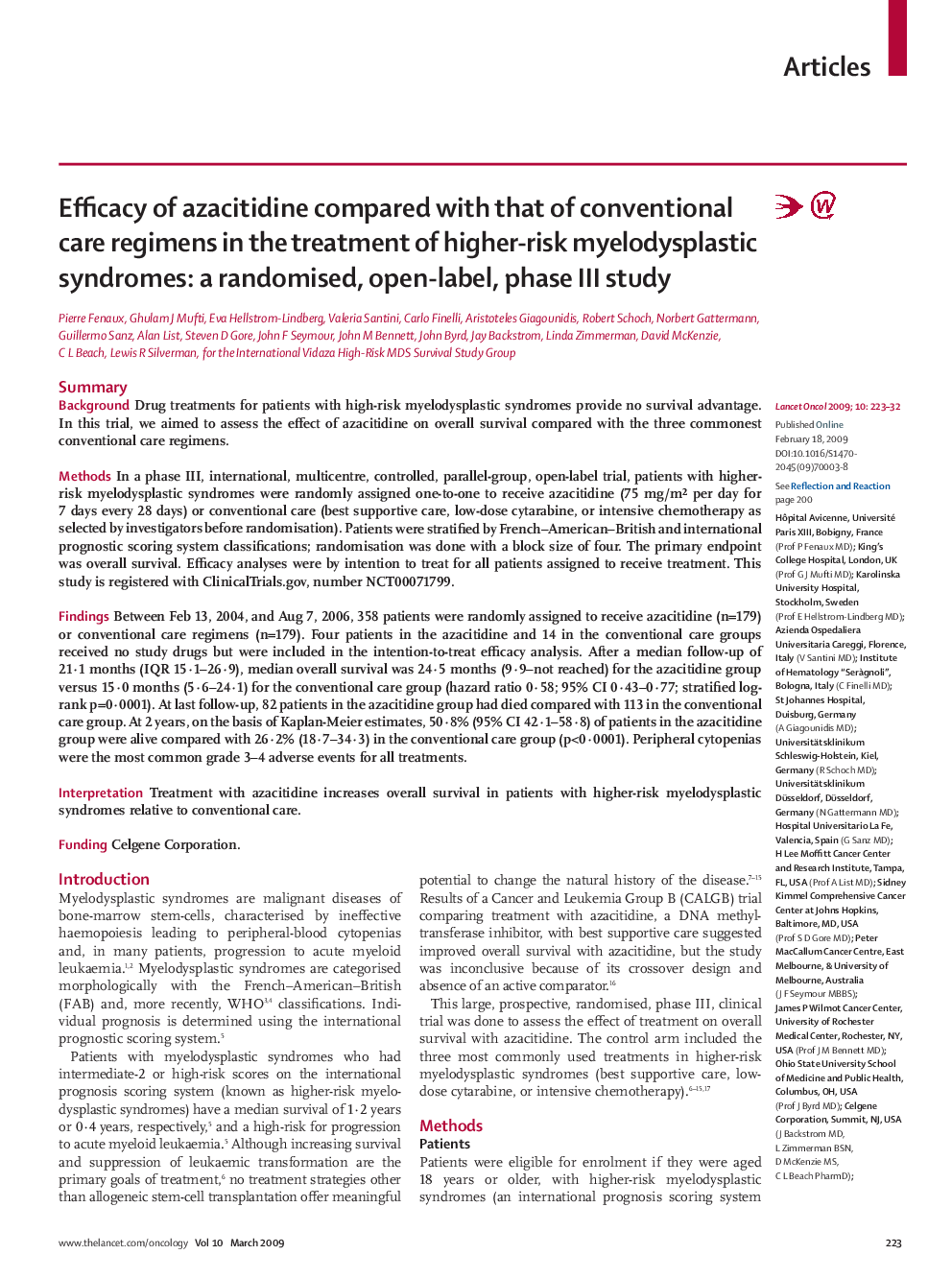| Article ID | Journal | Published Year | Pages | File Type |
|---|---|---|---|---|
| 3994906 | The Lancet Oncology | 2009 | 10 Pages |
SummaryBackgroundDrug treatments for patients with high-risk myelodysplastic syndromes provide no survival advantage. In this trial, we aimed to assess the effect of azacitidine on overall survival compared with the three commonest conventional care regimens.MethodsIn a phase III, international, multicentre, controlled, parallel-group, open-label trial, patients with higher-risk myelodysplastic syndromes were randomly assigned one-to-one to receive azacitidine (75 mg/m2 per day for 7 days every 28 days) or conventional care (best supportive care, low-dose cytarabine, or intensive chemotherapy as selected by investigators before randomisation). Patients were stratified by French–American–British and international prognostic scoring system classifications; randomisation was done with a block size of four. The primary endpoint was overall survival. Efficacy analyses were by intention to treat for all patients assigned to receive treatment. This study is registered with ClinicalTrials.gov, number NCT00071799.FindingsBetween Feb 13, 2004, and Aug 7, 2006, 358 patients were randomly assigned to receive azacitidine (n=179) or conventional care regimens (n=179). Four patients in the azacitidine and 14 in the conventional care groups received no study drugs but were included in the intention-to-treat efficacy analysis. After a median follow-up of 21·1 months (IQR 15·1–26·9), median overall survival was 24·5 months (9·9–not reached) for the azacitidine group versus 15·0 months (5·6–24·1) for the conventional care group (hazard ratio 0·58; 95% CI 0·43–0·77; stratified log-rank p=0·0001). At last follow-up, 82 patients in the azacitidine group had died compared with 113 in the conventional care group. At 2 years, on the basis of Kaplan-Meier estimates, 50·8% (95% CI 42·1–58·8) of patients in the azacitidine group were alive compared with 26·2% (18·7–34·3) in the conventional care group (p<0·0001). Peripheral cytopenias were the most common grade 3–4 adverse events for all treatments.InterpretationTreatment with azacitidine increases overall survival in patients with higher-risk myelodysplastic syndromes relative to conventional care.FundingCelgene Corporation.
